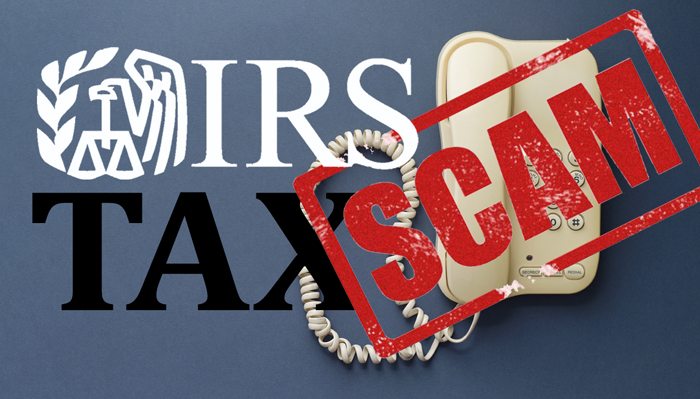Beware of These 5 Types of IRS Tax Scams
 Don’t be fooled by the caller ID that says IRS. It is a big mistake always to assume someone from tax office has called. Many scammers bait people to get sensitive credentials or present non-existent tax bills to rip people off their money. Continuous requests for gift card payments or asking for Social Security numbers is a common tactic used by fraudsters to scam you. As you reject to comply, they may even threaten you, saying the law enforcers are on their way to seal the deal with you.
Don’t be fooled by the caller ID that says IRS. It is a big mistake always to assume someone from tax office has called. Many scammers bait people to get sensitive credentials or present non-existent tax bills to rip people off their money. Continuous requests for gift card payments or asking for Social Security numbers is a common tactic used by fraudsters to scam you. As you reject to comply, they may even threaten you, saying the law enforcers are on their way to seal the deal with you.
How do scammers trace you?
To scam someone, those unscrupulous people don’t only use phone calls. They can either use text message or emails to intimidate you, too.
At the recent time, the rate of sending fraudulent emails is on the rise. You should take notice of the following red flags to avoid being the next victim of an IRS tax scam.
Phone calls, text, or email claiming to be from the IRS.
When contacting taxpayers, the IRS’s preferred method of communication is through the US Postal Service. If you see IRS on your caller ID, you should reject it straight away. This is not the usual way IRA contacts people.
However, many people lack the self-discipline to avoid such emails or calls. Also, they are the primary victims of the IRS tax scams. Once you open their email, they can ask for credentials, or tell you to download the attachment which can contain malware capable of stealing financial information.
The first rule is not to receive calls from unknown callers. When it comes to emails, delete the message right away without thinking twice.
Watch out for bad grammar and poor sentence structures.
If you still happen to be reading an email from the so-called IRS, you can quickly identify a scam though poor English and awkward sentence structure. Common spelling mistakes are another sign of a scam. Sometimes those scammers are from outside the States, so naturally you will notice some anomalies in the text. If this is the case, delete the message instantly. If you still have any doubt, make sure to contact the IRS tax helpline to be sure.
What to do when you are threatened?
IRS, in general, has an intimidating reputation in public. Scammers make use of it now and then to steal from people. Because of this ingrained fear, people often tend to give up sensitive data without verifying first. However, according to the IRS, it is not possible to threaten someone with arrest; since an outstanding tax due is a matter of civil dispute, rather than a criminal offense. So, there is no question of involving law enforcers in the first place.
Payment requests via prepaid card, gift card, or wire transfer.
Scammers often ask people to buy gift or prepaid cards to pay your tax. Sometimes they even demand that you wire transfer the fund. However, the IRS staunchly rejects such instant methods of payment. Moreover, it is not up to the IRS to order which payment method to select. Lastly, it doesn’t at all make sense for a Government agency like IRS to wish to be paid through gift cards in the first place.
Be careful about any direct deposit in your bank account.
Scammers are relentless in their effort to find new ways to rip off people. One of these is a sudden direct deposit by the Treasury Department in your account. Usually, the deposit is followed by a call from an IRS impersonator, asking for the refund of the money or your bank information. In such a situation you can contact the above mentioned IRS tax helpline or ask your bank to refund the money to the government.
Even if you think you owe money to the IRS in the form of tax payment, you ought not to make any payment over the phone.
Besides ignoring any potential scam attempt, you can bring the charlatan behind the scene to book as well. Directly report any suspicious activities aimed at you. There is an IRS Impersonation Scam Reporting form on the website of the Treasury Inspector General for Tax Administration. In case of a scam, you should contact your local police agency without further delay.